Impact Framework for CleanTech Community in Canada
What was the initiative?
Nivatha’s initiative focused on environmental and social impact within the Canadian CleanTech sector by establishing an impact arm within Dispersa, a Canadian CleanTech startup. Specifically, this included proposing a regulatory framework that would encourage the adoption of clean technologies such as Dispersa’s bio-ingredient technology. Such a framework would help distinguish greenwashing from real sustainable solutions. This impact arm would also address social impact by creating community-based initiatives to help bridge the gap in underrepresented groups within the CleanTech sector. One such community-based initiative that Nivatha began developing for her Pathy Fellowship aimed to provide interested youth with mentorship and career growth opportunities to establish themselves within the Canadian CleanTech sector. As the founder and CEO of Dispersa, Nivatha’s priority during her Pathy Fellowship was to establish ways to increase and integrate environmental and social impact in a dedicated, values-driven way in the everyday operations of her growing startup.
What was the community connection?
Nivatha started the research at the heart of Dispersa at the age of 17 after being motivated to find an environmentally-friendly solution to oil contamination (following the Lac-Megantic train crash). Through this research, Nivatha identified a method of extracting biosurfactants from microbes. She later founded Dispersa in 2018, and began immersing herself in the Canadian CleanTech community. Using Dispersa as the partner vehicle for her Pathy initiative, Nivatha joined multiple stakeholders throughout the Canadian CleanTech ecosystem (ranging from CleanTech startups, to non-profit organizations, to end-user clients, to academia, and government bodies). Throughout the initiative, these stakeholders provided guidance and input in developing the framework as well as supporting the creation of a youth mentorship program.
How was it innovative?
At the time of implementing this Pathy initiative, no specific framework that sought to encourage the adoption of truly green ingredients, either at the governmental (policies/regulations) or non-governmental level (certification programs) existed. In working towards the development of this framework that distinguishes truly green technologies from those that are simply greenwashing, Nivatha hoped to advance the adoption of clean and sustainable ingredients across the country. This demarcation is needed – hence a separate framework or certification program – to incentivize and label sustainable ingredients. The first part of this initiative focused on just that: to create the foundational pillars of this climate impact framework, built by quantifiable impact assessment metrics, and guidance from stakeholders and end users. The second part of the initiative was the youth impact program. This program would be a first of its kind, proposed by a CleanTech startup, to provide a hands-on mentorship experience for underrepresented youth to develop skills and network to help jumpstart their careers in sustainability. During the Fellowship, Nivatha focused on setting the foundations for both parts of the initiative to continue to be built beyond the Fellowship year into a robust impact division of her CleanTech startup company.
Throughout the Fellowship year, Dispersa grew to new heights – they grew their team, received licensing, and produced their first pilot products, generated revenue from paid client partnerships, expanded their partnerships, and secured over $1M in additional funding. Nivatha was also a finalist and semi-finalist in a number of competitions, including the MaRS and Natural Resources Canada Women in CleanTech Challenge, the SheEO (now Coralus) Competition, and the Food Waste Reduction Challenge with Agriculture & Agri Food Canada. The impact portion of the technology has been quantified through GHG assessment, and Dispersa was able to conduct preliminary youth focus groups and consultations to build out their future youth program. Beyond the Fellowship year, Nivatha hopes to continue expanding Dispersa’s dedicated staff towards these projects, including hiring a sustainability/regulatory affairs coordinator. Dispersa’s first pilot products (hand sanitizer) that were produced during the Fellowship were also donated to a cancer center and local shelter. The foundational pillars of the framework have been established with the support of multiple stakeholders within the Canadian CleanTech sector.
What is Nivatha doing now?
Nivatha continues to grow Dispersa and the company’s impact division beyond the Fellowship. The Dispersa team is currently focused on scaling up production of their biosurfactant ingredients (soapy compounds that are palm and petroleum-free that can replace synthetic ingredients in consumer products such as detergents and cosmetics). Her aspirations are to scale Dispersa with her team in a sustainable and equitable manner to change the way we source chemicals – the building blocks of our everyday lives. In July, 2023, Nivatha and Dispersa were featured in a Forbes article, celebrating their $3 Million Dollar financing milestone.


